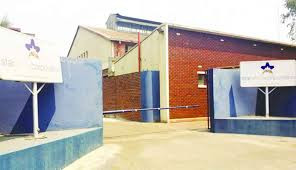
AFRICAN Distillers Limited (Afdis) managing director Muchaneta Ndachena has unveiled a bold growth strategy anchored on product portfolio diversification and increased production capacity, as the beverage maker positions itself to capture shifting consumer trends and emerging market opportunities.
Since stepping into the role on April 1, Ndachena has steered Afdis into an expansionary trajectory, highlighted by the recent announcement of a US$5 million investment plan aimed at significantly scaling up operations.
The investment will see Afdis increase its total production capacity from 18 million litres to 30 million litres over the next five years.
With effective execution, Ndachena believes the company could reach 36 million litres annually.
“We foresee growth from portfolio expansion to cater for changing consumer trends, take advantage of growth in RTD (ready-to-drink) segment, and further market penetration,” she told businessdigest in an interview.
“The strategy is to grow the business in the next five years, doubling volumes from the current 18 million litres by capturing opportunities in the environment (anticipated gross domestic product growth, driven mainly by the mining and agricultural sectors, infrastructure developments).”
The company is directing capital towards expanding manufacturing capacity, strengthening distribution networks, and upgrading RTD packaging solutions to align with changing consumption patterns.
During a recent tour of the company’s facilities, Industry and Commerce permanent secretary Thomas Utete Wushe acknowledged Afdis’s financing constraints and affirmed government support to improve access to affordable capital.
- Afdis relaunches Gold Blend brand
- Afdis bullish amid tough operating environment
- AFDIS eyes growth amid operational instability
- Afdis abandons local currency financial reporting
Keep Reading
However, Ndachena noted persistent operational challenges, including a heavy reliance on imported inputs such as glass and wine, erratic power supply, poor road infrastructure, and difficulties in implementing cost-effective alternative energy and distribution solutions.
The resurgence of illicit alcohol and grey-market products remains a key concern.
Although government crackdowns on smuggling since December 2024 initially lifted sales by 10%, illegal trade has begun to recover, prompting Ndachena to call for sustained regulatory enforcement.
For the financial year ending March 31, 2025, Afdis recorded a 15% increase in overall volumes, with wines surging 29%, RTDs rising 21%, and spirits growing by 7%.
This was driven in part by a pivot towards independent trade channels amid ongoing challenges in formal retail. Revenue rose 15% to US$59,7 million.
However, rising production costs — up 34% to US$43,5 million — squeezed margins, resulting in a decline in after-tax profit to US$5,12 million, down from US$7,62 million the previous year.
Despite cost pressures, Afdis grew its total assets by 14% to US$26,9 million, supported by US$1,8 million in capital expenditure targeted at enhancing operational efficiency.











